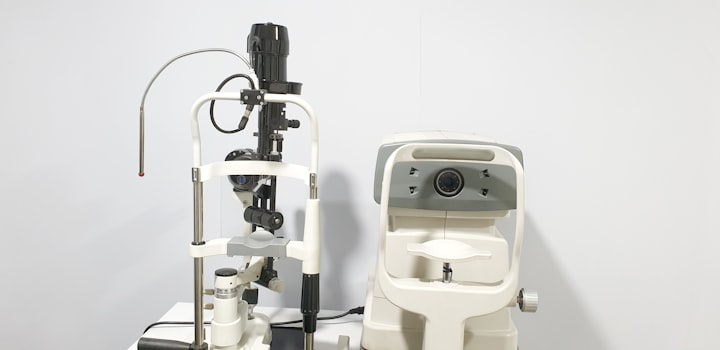What is the new technology in healthcare?
The healthcare industry, before a decade and today, is not anymore the same. It has encountered rapid growth, both digitally and technically.

Since we all know how rapidly the healthcare industry is changing. The inclusion of new and innovative technologies are adding weight to the efficiency of healthcare. And this addition, with innovations, is ever-changing and ever-growing.
The healthcare industry, before a decade and today, is not anymore the same. It has encountered rapid growth, both digitally and technically. The inclusion of devices, vaccines, medicines, smart gadgets, along with smart software, is more efficient and free of accuracy. Here's what you need to know about the addition of new technologies in healthcare:
Addition of Portal technology:
The new age of healthcare is all about empowering the patients and helping them to learn more about their health care. That's what portal technology does. Patients are becoming more active with their healthcare process, and both the physicians and patients can get access to the records and data.
The online interaction, close involvement of patients to the medical information add more clear benefits to the system. Patients can now easily get information about their treatment, curing process, doctor list, etc., which makes them become active participants in their cure.
Inclusion of virtual reality in healthcare:
The inclusion of virtual reality has started showing positive signs in the healthcare industry. It is changing the way of treatment while making it less painful for patients. Surgeons are using VR for future surgeons to practice operations in a more detailed way. Recent studies are showing the effectiveness of VR in the studies of medicine as the VR-trained surgeons performed much better than regularly trained doctors.
However, the benefits are also visible in the case of the patients as it works as a better tool to distract patients from their pain. Women have experienced less pain during their delivery while visualizing soothing landscapes. Also, it helps as an anxiety relief for the patients during surgery.
Use of artificial intelligence:
Artificial intelligence is not only serving the medical ground with efficiency but also showing a promising future for everyone. The potential of healthcare marketing has got a new motion with its reliable service.
The AI engines have the capabilities to reduce the risk of preventable medical scenarios in a more effective way. With its automated reminding technology, patients can easily get reminders about taking their medication and follow-up check-up routines. Also, initiatives are taken to use it as a device to alert the medical staff for those who are in an emergency and need medical intervention. To understand the dosage and needs of each patient's body chemistry, AI has started showing positive results for personalized treatment.
Wearable technologies and sensors:
The market of wearable medical devices meets a hike of growth every year because of its emerging popularity. Wearables are simply collecting data about the health to keep the user aware of it. It's a more positive step towards self-care. Wearables are capable of sending an alert to the patient's care provider about the growing sign of any infections or anything serious. As the experts see hope in detecting if anything abnormal is happening, they will be able to provide fast and quick prevention.
Telemedicine is a thing:
The USA's healthcare system is seeing the evolution in telemedicine, and it's starting to rule. Telemedicine is improving faster to offer an easy diagnosis with effective treatments to the patients. The easy availability of the electronic records has met motions with easy forwarding of documents to the specialists for a faster cure.
Telemedicine is showing a huge change in data exchanging platforms to rule on the health sector with a reduced rate of readmissions as medical persons can easily monitor the health of their patient's post-discharge so that they can lead a completely routine-bound life.
Cloud computing technology in healthcare:
The whole infrastructure of the healthcare system takes huge advantage of the data and records. Also, the loss of any data can cause a major drawback in the easy motion and growth. The first choice of digital technology in the medical sector is the cloud-based computing technology system. Both the patients and the healthcare providers stay on the benefited side along with the access to huge data collection.
Moreover, access to the wide range of general health information educates people more about being health conscious and draws the statistics for market growth. Also, the private cloud systems work with much efficiency in security building for sensitive information to keep them in better control.
The growth is unlimited, and the inclusion of those technologies in the healthcare industry is unending. Most of them have shown positive signs of growth and benefits. However, there are several disadvantages. But we should be aware of both the positive and negative sides of these technologies, to stay aware and conscious of what we are getting from the health sectors.





Comments
There are no comments for this story
Be the first to respond and start the conversation.